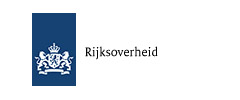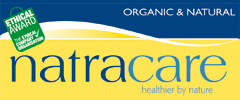Final proposal for "Sustainable Development Goals": WECF and Women's Major Group publish assessment of the outcome
21.07.2014 |Sascha Gabizon

WECF as one of the "organising partners" of the "Women’s Major Group", comprised of over 500 women’s human rights and development organizations, has substantively engaged in the consultations and negotiations throughout this two-year process, and have published their assessment and "red flags".
The General Assembly’s (GA) Open Working Group (OWG) on Sustainable Development Goals (SDGs) submitted a report with a proposal for sustainable development goals to the 68th session of the UN General Assembly as part of the “Post 2015” process. The SDG process has been inclusive of all Member States as well as the Women’s and other civil society Major Groups and we welcome this openness. WECF is convinced that civil society’s full and meaningful participation in decision-making are among the essential aspects of our new global development agenda.
Sascha Gabizon, Director of WECF stated: "We commend those governments who have fought hard to secure and advance gender equality and the women’s human rights throughout this process, and we deplore the countries who consistently have tried to delete language around women and girl’s rights. We commend the co-chairs for forging a compromise with all member states and for not having given in to pressures to reduce the goals to the lowest common denominator. Even though the Women’s Major Group believe that ambition should have been higher, the adoption of the SDG document by the Open Working Document is a significant step forward".
Bhumika Machala of Third World Network, partner of the Women's Major Group, commented: "It was a complex negotiation process amidst sharp differences and disputes among member states. Taking this political reality into consideration, the adoption of the SDG document is a commendable achievement."
The Women's Major Group welcomes: The standalone goal 5: “Achieve gender equality and the empowerment of women and girls” with its targets to end all forms of violence, discrimination, early forced marriage and harmful practices against women and girls, universal access to sexual and reproductive health and reproductive rights, to ensure women’s full participation in decision making, and equal rights to land and economic resources. We also welcome the fact that gender equality and women’s rights are addressed in different goal areas including equal rights to education and life-long learning, to decent work and equal pay for work of equal value; the stand alone goal on inequalities within and between countries, as this is imperative to addressing the root causes of poverty; and the targets to reverse the trend towards ever growing income inequalities by reforming global financial systems and fiscal measures; the goal on peaceful inclusive societies and its targets on participatory decision making, access to justice and reducing arms flow; the goal on Means of Implementation (MOI) and that in addition each goal area has its own set of implementation targets - although many of these MOI targets lack ambition, We welcome the fact that, unlike the MDGs, the agenda has standalone goals on ecosystems, ocean, sustainable consumption and production and a standalone goal on climate change which recognizes women’s role; and that, the agenda comprehensively aims to end poverty and hunger, ensure healthy lives, universal access to water and sanitation for all.
However, the Women’s Major Group has continuously called for stronger rights-based targets and a deeper transformation of our economic and financial systems, which it regrets are not reflected in the outcome document, and presents eight "red flags"(PDF). Red Flag 1) Absence of women's human rights Red Flag 2) Sexual and reproductive health targets do not go far enough Red Flag 3) Concentration of power and wealth not sufficiently addressed Red Flag 4) The burden of unpaid domestic and care work still rely on women Red Flag 5) Lack of rights and recognition of women as farmers, fishers, indigenous peoples and key for sustainable natural resource management Red Flag 6) Insufficient attention to women’s role in peace and justice. Red flag 7) Concern around “partnership(s)” Red Flag 8) Technology focus remains on trade and private access
The way forward must ensure priority for women’s and girl’s human rights in the process and outcomes. The work going forward will be to ensure that General Assembly negotiations take place based on the document as it stands now, as well as in a manner that is inclusive, transparent and accountable. The Women's Major Group calls on the Secretary General and the General Assembly to not apply arbitrary reductions or “simplifications”. Countries should only commit to further strengthening and to no further regressions of proposed goals and targets. The Women's Major Group focus in the coming year, leading up to the Post-2105 Summit in September 2015, will be to ensure that the Post-2015 Agenda will have strong financial commitments, with a focus on public funding for sustainable development based on a reform of current unsustainable financial and trade systems, and that governments commit to women’s equal say, equal access and equal share in access to finance and other Means of Implementation. The Women's Major Group also calls on Member States to ensure strong participation of civil society including the Women’s Major Group and other constituencies in the process leading up to and following the Post-2015 Summit in September 2015. The process must be inclusive, with full access and meaningful participation of Major Groups and civil society.
Here you can find the press release.

































